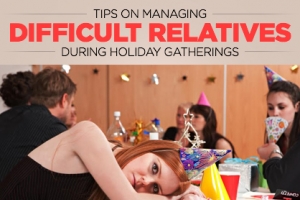Just Take a Pill and Be Fine?: A Pill-Popping Society
Nowadays, it seems there is a pill to cure just about anything. From anxiety to having too little energy, one out of every five Americans takes drugs to treat a mental health condition. Dr. Steven Walker, nationally known mental health therapist and doctor, believes this epidemic is on the rise and the answer resides at root of the problem.
“I think pharmaceutical companies have done a really good job of convincing people that if you are depressed, take a pill,” Walker said. “If you’re anxious, take a pill. If you are shy at a party, take a pill. And I think a lot of it does have to do with the media and with people not just questioning ‘wait a minute, why do I believe this?’”
The allure of the pill is simple: It is an instant cure. Pharmaceutical companies, he says, are just giving people what they crave.
“The majority of people want a quick fix. Something that is going to give them an immediate result. So they make it seem like this pill will cure you”.
Pills, said Walker, can be part of the answer – especially when combined with therapy, diet and other forms of healing – but are not the complete answer.
“Somebody who is intensely depressed has low serotonin levels affected by their healing and behaviors,” he said. “Get a little bit more serotonin and you are going to feel better. But that is not the answer… Low-dose medications, undoubtedly help bring a little stability to the person, but that is treating a symptom. It’s not treating the cause.”
As huge conglomerates, pharmaceutical companies are simply out to maximize profit and perpetuate their own existence. While they do have the goal of healing people, they are not truly concerned with making people well. Pharmaceutical companies focus is profit.
“It’s a cultural thing,” Walker said. “We tend to externalize health in our country. We think a doctor is going to cure us, a pill is going to cure us, a new car is going to cure us. I think a pill is just kind of an extension of the idea that my healing resides outside of me.”
.png)
People are also being too quickly diagnosed. General practitioners not trained in psychology are picking up a prescription pad and scribbling out an order for conditions they do not truly understand. The majority of mental health medications are prescribed by general practitioners. People think because they are doctors they must know what they are doing, when, in fact, they have not been appropriately trained in the area of mental health.
“I wouldn’t have a patient of mine come in and I would start diagnosing them with diabetes or back pain or whatever,” Walker said. “General practitioners should not be diagnosing anything related to mental health. In fact, psychiatrists aren’t even trained in therapy … Psychologists like myself have six, seven, eight years of clinical training before we are even allowed to get licensed.”
Another part of our take-a-pill mindset is the intense effect of the placebo. Walker reports that in some studies, the placebo has the same effect as the actual pill. Believing that a pill can help you can actually alter your brain chemistry. Because we believe the pill helps, it does.
Walker cites a variety of studies which discovered that 85 percent of people who underwent three to six months of therapy reported improvement. No pill, he claims, can even approach that figure.
“But that is not the message being put out there by the American Psychological Association. Psychotherapy results are way better than any pharmaceutical drug. Way better. If there was a pharmaceutical drug that was getting 85 percent results, that would be phenomenal,” he said.
Part of the cure to this pill-popping epidemic is to accept that everyone has issues. We need to work on these issues and get help processing our thinking and feeling – preferably from a professional.
The right answer is to ask if your doctor is trained in delivering a mental health diagnosis. If not, ask for a referral to a licensed mental health practitioner. The ultimate prescription, according to Walker, is a low-dose antidepressant coupled with psychotherapy.
“Most antidepressants aren’t giving people the effects they want … If people don’t really take control of their feelings and stop relying on medication, it is going to get worse,” Walker said.
For more information about Walker, visit his website at www.licensedpsychology.com.
Tagged in: lux exclusives, wellness, health,

Photo Courtesy of en.paperblog.com



